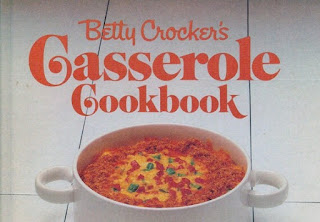Old ministry friend, John
Shaffer, and I exchange remembrances of times past. He and Barbara just
celebrated their 60th wedding anniversary, so we’ve been sharing
wedding stories. Here is part of a missive I sent to him… [See, I’m not
writing, just corresponding with a friend.]
In my early years of doing
weddings, I prided myself on predicting which marriages would last and which
wouldn’t. I had a right to; I was always correct. That turned out to be
accidental and ephemeral. At some point I began to be wrong as often as I was
right.
Also, during my early
years, there was a movement for preachers not to accept gratuities for weddings
and funerals. The idea was that we were paid a salary as a professional and
should not be taking tips for extra service. In addition, it was to be a source
of evangelism for non-members.
This absence of wedding
fees upset the wives of preachers, whose only source of income was wedding
gratuities, since they had to give their egg money to missions. [1]
Also, it confused people,
who thought I was rejecting them by rejecting their largesse. After I realized
that my gratuitous refusal of gratuities was causing more harm than good, I
just took whatever came and said thanks, which is a pretty good approach to
life in general.
I think my most… I’m not
sure. You can decide what to call it. I was campus minister at ILSU. I had two
student weddings the same Saturday. The second one I wrote about in CIW for
5-10-22, the Chinese grad students where the bride was so overcome that she
could not answer the questions because she could make no sounds. It was
poignant and meaningful, a small wedding in the chapel.
The earlier one was a big,
formal wedding in the sanctuary. It was a horror, in a thousand ways, from
pre-wedding counseling to rehearsal. The worst thing happened in the bride
room, just before the service was to begin.
The bride realized that
there was a slight tear in the hem of her veil. It was so small no one else had
even noticed it. The wedding consultant from the expensive bridal store
downtown said, “No problem, I’ll just use my scissors to cut off the entire
last row of lace on the veil, and since all the rows are the same, no one will
ever know.”
The bride went berserk.
“This is MY wedding!! It has to be perfect!! I want a veil that is 17 inches
and not 16 & ¾!!! It won’t be perfect if my veil is short!!” She made
everybody wait for half an hour while the bridal consultant went back to her
store and got a replacement veil of the “correct” length. [I always hoped that
while she was at the store, the consultant cut off the last row of lace and
told that bridezilla that it was the right length.]
That was only one of the
indignities foisted upon everyone at that wedding. It was a total shallow sham,
with me as the hired man, and everyone else, including the parents who were
paying for the whole thing, treated as serfs and servants.
Then they went to the
gym/reception hall to party so loudly that as I waited in the lounge beside the
chapel, with the Chinese groom and his best man, the groom and I could hardly
hear each other. We were just ready to walk into the chapel when the frat-boy
groom from the first wedding burst through the door, with a retinue of
boisterous nincompoops, pulled out his wallet, fanned it open, and said, “How
much do I owe you?”
I was thoroughly disgusted
with that bunch by then, so I said, “How much do you have?” He looked at it.
“Fifty dollars.” [These were 1970 dollars. What would that be now? Five
hundred, maybe?] “That will be enough,” I said, and held out my hand. All his
friends, plus a couple of Chinese guys, were watching. He had no choice but to
hand it over. I gave it to my wife.
When the Chinese groom
tried to pay me after his wedding, I explained that the frat-boy groom had paid
for him, too.
John Robert McFarland
1] When I started
preaching in 1956, all ministers were male, almost all were married, and wives
were considered unpaid employees of the church. They did not work “outside.”
The tradition, in exchange, was that wedding honoraria were given to the wives.
Also, parsonages had gardens, and many small-town preachers kept chickens. “Egg
money,” returns on selling excess eggs, was understood as a wife’s contribution
to missions.






